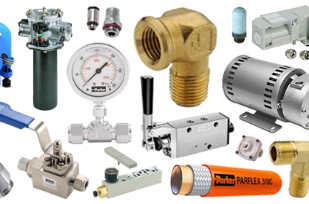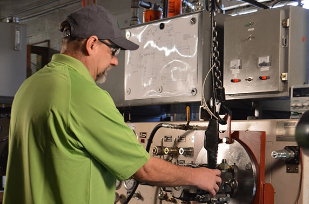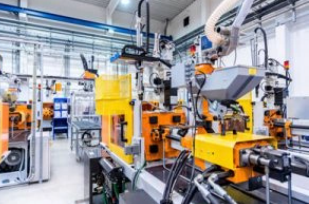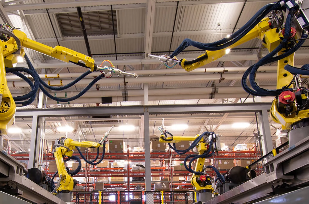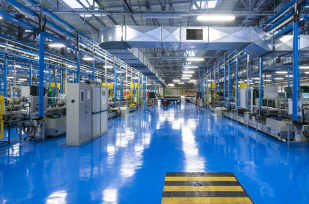
Don’t let concerns for your hearing health fall on deaf ears.
Numerous jobs require work in high-volume areas. Heavy machinery produces loud noises over a long period of time, which causes hearing damage. Damage can occur even after one day of work.
Many companies provide hearing protection for their workers. That’s a good start. But protecting you and your employees’ hearing requires knowledge and precautions.
You can start here. Here is a quick guide to decibel levels and how GAST products protect you.
Safe Decibel Levels
The decibel (dB) is the measurement unit for sound. The higher the decibel level is, the louder the sound is. Decibels go up logarithmically, which means that a decibel increase of 10 means the sound is 10 times more powerful.
Most common sounds pose no danger to hearing. Normal breathing is at 10 dB, while a normal conversation is at 60 dB. Many industrial products also pose no danger, including laundry machines and microwaves.
The exact line for what decibel level damages hearing depends on who you ask. But most health organizations point to 85 dB as the point where sounds can cause damage. A forklift is at 87 dB, while a lawnmower is at roughly 90 dB.
You do not need protection for noises under 90 dB. But you should limit your exposure to noises between 80 and 90 dB as much as possible.
Leave an area where noises are continuous and loud. Wear earmuffs or earplugs whenever possible.
Dangerous Decibel Levels
OSHA requires hearing protection at 90 dB. A table saw is at 93 dB, while a bulldozer is at 100 dB. Sounds at this level can cause hearing damage after two to four hours of unprotected exposure.
Noises above 115 dB can cause almost immediate damage without protection. A compactor is at 116 dB, and a chainsaw is at 118. Even a hammer striking a nail can cause noises up to 120 dB.
Noises at 130 dB cause immediate and sharp pain. A dynamite blast is at 140 dB, and a jet engine taking off is at 150 dB.
Noises at 160 dB cause immediate physical damage. A firework exploding causes 162 dB, and a shotgun blast causes 170 dB.
Most earmuffs and earplugs do not provide sufficient protection beyond 130 dB. You need to limit your exposure to sounds above that level. Remove yourself from the area and then let your ears rest for some time.
Hearing Loss
The overwhelming majority of industrial machines pose a significant threat to hearing. Most people damage their hearing through continuous exposure to moderate levels of noise. But it is possible to damage your hearing after one exposure to very loud noise.
Some people are at higher risk for hearing loss than others. Hearing loss has genetic components. Older people experience hearing loss at a higher rate than younger people.
People with ear infections or with diseases like diabetes can also lose their hearing. Taking certain medicines like gentamicin increases the risk of hearing loss.
Hearing loss begins subtly. A person may be able to hear most noises, but soft noises are hard to make out. High-pitched noises may be difficult to hear.
Ringing in the ears indicates a moderate hearing loss. Inability to hear certain consonants is a sign of progressed hearing loss. Deafness can present itself long after exposure to loud noises, even with few or no previous symptoms.
Provide a seminar to workers on the signs and treatments for hearing loss. Even if they are wearing protection, loud enough noises can cause damage. Check in with your older workers on a regular basis.
Gast Products
Gast has offered safe and affordable industrial products for more than 90 years. The medical, agricultural, and manufacturing industries all use Gast, in part because Gast products are safe for hearing.
Gast air compressors are made with corrosion-resistant materials. Its ring design provides steady air flows for every operation. Without corrosion, Gast air compressors make less noise than most other compressors on the market.
Gast linear pumps are precision designed so they create minimal pulsation. By remaining in place without rattling, linear pumps keep the noise level down. Gast pumps also offer clean air exhaust at a consistent rate, reducing noisy gas buildup.
Gast regenerative blowers need no lubrication, requiring minimal maintenance. You can reduce the time you spend around them, which in turn reduces your exposure to noise.
Gast rotary vanes are oilless but lubricated and motor-mounted. The lubrication allows the vane to move while in service, reducing loud and sharp noises.
Gast products reduce your exposure to harmful noises, but only when you practice proper precautions around them. You must always wear hearing protection. Move away from the machines as they make noise, and limit the time you spend standing around them.
Protect Your Hearing and Build Your Business
Hearing loss is a serious concern for many businesses. Even the most basic industrial occupations can damage a person’s hearing. You can help yourself and your employees by knowing about decibel levels and buying the right products.
Decibel levels are logarithmic. Every increase of 10 decibels means a sound is 10 times more powerful.
OSHA requires hearing protection for worksites that have noises at 90 dB or above. Most industrial machines operate at or above 90 dB. Hearing loss can take years to develop, but it can come from using industrial machinery.
Protect your employees and yourself with Gast products. Gast designs its products for versatility, endurance, and function. They reduce pulsation and remain well-lubricated, keeping noise levels down.
Go to the experts on Gast products. The RG Group has years of experience in providing companies with strong manufacturing tools. Contact us today.

